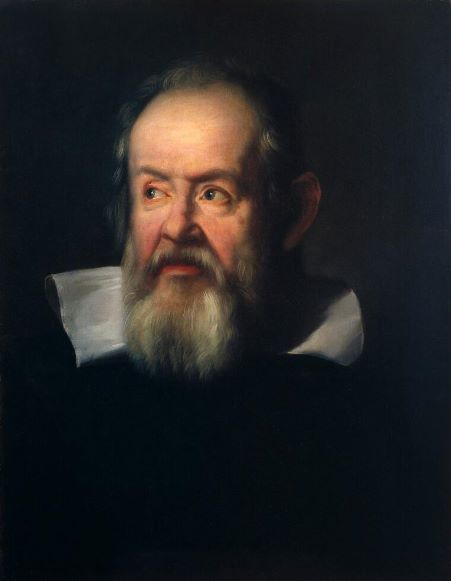- About MAA
- Membership
- MAA Publications
- Periodicals
- Blogs
- MAA Book Series
- MAA Press (an imprint of the AMS)
- MAA Notes
- MAA Reviews
- Mathematical Communication
- Information for Libraries
- Author Resources
- Advertise with MAA
- Meetings
- Competitions
- Programs
- Communities
- MAA Sections
- SIGMAA
- MAA Connect
- Students
- MAA Awards
- Awards Booklets
- Writing Awards
- Teaching Awards
- Service Awards
- Research Awards
- Lecture Awards
- Putnam Competition Individual and Team Winners
- D. E. Shaw Group AMC 8 Awards & Certificates
- Maryam Mirzakhani AMC 10 A Awards & Certificates
- Two Sigma AMC 10 B Awards & Certificates
- Jane Street AMC 12 A Awards & Certificates
- Akamai AMC 12 B Awards & Certificates
- High School Teachers
- News
You are here
Quotations in Context: Galileo – 1
“Measure what is measurable, and make measurable what is not so.”
Variations of the quotation above have been repeatedly ascribed to Galileo Galilei over the last century, but a primary source for the quotation is never provided. An examination of some of his most famous works—The Assayer, Dialogue Concerning the Two Chief World Systems, Discourse on Two New Sciences, Letter to the Grand Duchess Christina, Mechanics, On Motion, and Sidereus Nuncius—shows that they contain no such statement; however, this is by no means a comprehensive list of his published writings, and it is always possible that the quotation appears in a private letter or set of unpublished notes.

Painting of Galileo, artist unknown but in the style of Justus Sustermans. Public domain, Wellcome Collection.
The oldest source I have been able to discover that contains the above quotation is the work Galilée: Les droits de la science et la méthode des sciences physiques, which was published by historian of science Thomas Henri Martin in 1868. In this book, Martin stated the following, with the key text shown in bold:
Galilée sait que tous les objets physiques sont étendus et par conséquent mesurables par essence, quoiqu’ils ne soient pas toujours mesurables pour nous; il sait que tous les phénomènes physiques s’accomplissent en des temps susceptibles de mesure; il sait que les phénomènes purement physiques doivent se réduire à des mouvements, les uns perceptibles pour nos sens, les autres imperceptibles pour nous à titre de mouvements appréciables. Il déclare que dans tous ces phénomènes il faut mesurer tout ce qui est mesurable, et tâcher de rendre mesurable tout ce qui ne l’est pas directement. Il ne s’agit donc pas de poser des principes, les uns métaphysiques, les autres mathématiques, puis d’essayer d’en conclure a priori quelles doivent être les lois physiques; mais il s’agit d’abord d’observer, d’expérimenter, de mesurer, de compter, et ensuite de demander aux mathématiques et au raisonnement la formule, l’analyse, la transformation et le développement des résultats obtenus [Martin 1868, p. 289].
Although Martin’s work contained direct quotations from Galileo, he did not denote this specific passage as being one. This suggests that this famous “quotation” might not represent a direct statement from Galileo, but that it is instead a summary description of his ideas and beliefs written by a much later author.
Reference
Martin, Thomas Henri. 1868. Galilée: Les droits de la science et la méthode des sciences physiques. Paris: Didier et cie.
“Quotations in Context” is a regular column written by Michael Molinsky that has appeared in the CSHPM/SCHPM Bulletin of the Canadian Society for History and Philosophy of Mathematics since 2006 (this installment was first published in May 2013). In the modern world, quotations by mathematicians or about mathematics frequently appear in works written for a general audience, but often these quotations are provided without listing a primary source or providing any information about the surrounding context in which the quotation appeared. These columns provide interesting information on selected statements related to mathematics, but more importantly, the columns highlight the fact that students today can do the same legwork, using online databases of original sources to track down and examine quotations in their original context.
Michael Molinsky (University of Maine at Farmington), "Quotations in Context: Galileo – 1," Convergence (December 2023)




